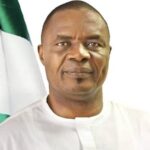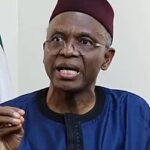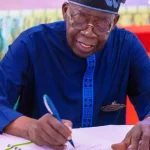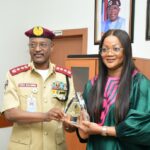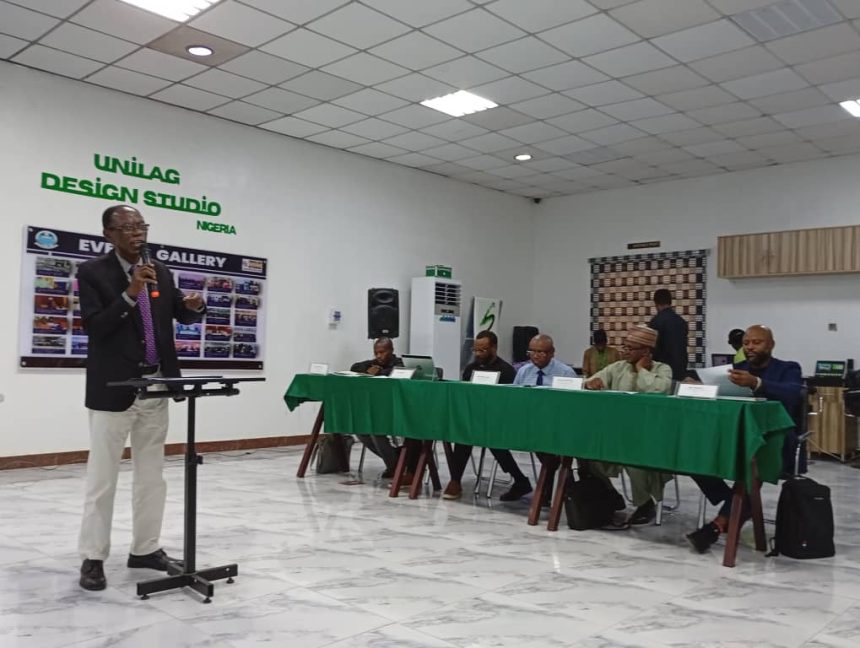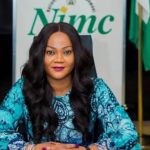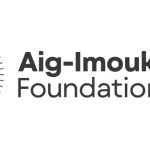Pix caption: Professor Solomon Okunuga, Director Of Research Management Office delivering welcome speech on behalf of the UNILAG Vice Chancellor, Professor Folashade Ogunsola during the event on Thursday, July 24, 2025
By Chidi Ugwu
The National Automotive Design and Development Council (NADDC) has concluded the design phase of its groundbreaking 8-Seater Electric Vehicle (EV) Campus Shuttle Bus Competition.
The closing ceremony, held at the University of Lagos, was marked by an inspiring speech from the Director General of the NADDC, Oluwemimo Osanipin.
Represented at the day one of the two-day event on Thursday by Engr. Ayinde Abdullahi, Director of Vehicle Electrification at NADDC, Osanipin hailed the initiative as a transformative step in Nigeria’s automotive and educational sectors.
The competition brought together 12 pioneering Nigerian universities in a bid to design a fully electric campus shuttle bus tailored for local mobility needs.
According to the NADDC DG, the project aimed at far more than vehicle design.
“Our mission with this competition was never just about building a vehicle; it was about building capacity,” he said.
“It was about equipping our engineering students with the mindset, skills, and structure needed to thrive in the fast-evolving global mobility sector.”
Five universities that qualified for the final round and made presentations on their designs are Abubakar Tafawa Balewa University (ATBU) Bauchi, Federal University of Technology Owerri, University of Abuja, University of Benin and University of Lagos.
Throughout the competition, student teams were challenged to form multi-disciplinary groups, produce a detailed project management plan, create a feasibility video and accompanying presentation, and submit a comprehensive suite of design documents ranging from preliminary sketches to final vehicle files.
Each team comprised 20 members, including 10 core student contributors.
“These are not just checkboxes,” Osanipin emphasized. “They are architectural plans that represent innovation, creative resilience, and future possibilities.”
Submissions were assessed by a panel of judges representing academia, government, and industry—ensuring a balanced evaluation of both technical sophistication and societal impact.
As the design phase draws to a close, NADDC is setting its sights on the next phase: physical development. Selected designs may proceed to construction, testing, and possible deployment across Nigerian university campuses.
“Today, we close the design phase. But tomorrow opens new doors to build, test, refine, and possibly deploy these solutions,” Osanipin said. “To our students: You are no longer just learners; you are leaders in the making.”
The event marks a significant milestone in Nigeria’s efforts to localize the development of sustainable transport solutions, while empowering the next generation of engineers and innovators.
“To Nigeria: This is just the ignition; our engines of change are ready to run,” the DG stated.
“May the spark ignited here fuel an entire ecosystem of excellence, sustainability, and mobility—Made in Nigeria, made for the world.”
UNILAG VC, Prof Folasade Ogunsola, represented by Prof Solomon Okunuga, Director of the Research Management Office, expressed appreciation to the council for the initiative and kick-starting an innovation that could launch Nigeria into the globally recognised high-tech nations.
She urged all relevant groups to push forward the worthy outcomes of the design project and ensure adequate funding of the automobile engineering project.
Already, the VC said UNILAG currently has electric vehicles being used as bus shuttle on its campus.
With this initiative, NADDC continues to champion indigenous innovation, encouraging collaboration between academia and industry in driving forward Nigeria’s EV future.
Overall winner of the competition will be announced on Friday July 25 at a ceremony to be graced by high-ranking officials such as ministers of Industry Trade and Investment as well as that of Education, the Director-General of NADDC, the Executive Secretary of the National Universities Commission, and the Vice Chancellor of the University of Lagos. Industry leaders, academics, mentors, and students.



